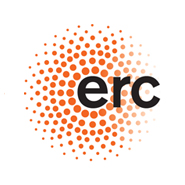Posted: 26 Sep 2012
European Research Council funding for 2 UCD researchers
2 UCD researchers have been awarded European Research Council (ERC) Starting Grants to build their research teams and further their investigations at the frontier of scientific knowledge.
Dr Emma Teeling from the UCD School of Biology and Environmental Science, who has been awarded €1.5 million over five years, will study wild bats in a search for clues to healthy ageing and longevity. Despite using up three times more energy than similar-sized mammals, bats can live up to nine times longer than expected.
Dr Debra Laefer from the UCD School of Civil, Structural and Environmental Engineering has been awarded a grant to develop a city-scale geometric computational model to help urban planners and civil engineers better understand and analyse the physical and mechanical behaviour of structures. The results will help reduce the damage to buildings caused by tunnelling and also help to preserve Europe's cultural heritage.
“The ERC awards are recognised as a measure of excellence in research across the EU. UCD now hosts 9 awards across a wide spectrum of disciplines, including archaeology, history, economics, engineering, biology, chemistry and environmental science,” said Professor Des Fitzgerald, Vice-President for Research, University College Dublin.
“The ERC awards were initiated to foster fundamental research and scholarship and to attract the best academics to Europe. With the emphasis now in Ireland on short term returns from research, the ERCs are most welcome and will contribute hugely to maintaining a strong research base in Ireland,” he added.
"In a global knowledge economy we need new ideas to compete. So investing in world-class frontier research and in the next generation of scientists is one of Europe's top priorities,” said EU Commissioner for Research, Innovation and Science, Máire Geoghegan-Quinn.
“After just five years, ERC grants are world-renowned, and help us retain and attract the best of the best."
In its biggest grant award ever, the ERC will support a total of 536 early-career top researchers from across 21 European countries. The funding amounts to almost €800 million and is awarded to researchers of 41 different nationalities across Europe.
The grants will enable the most promising scientists to develop ideas at the frontiers of knowledge and build their own research teams with more than 3,000 postdocs and PhD students, thereby supporting a new generation of top scientists in Europe.
The ERC Projects selected cover a wide range of topics, from the social impacts of trans-Mediterranean renewable energy cooperation, to laser-based hearing aids and optical remote sensing technology for civil engineering works.
In this latest competition 4741 applications were received, a 16% increase on last year that shows the growing awareness and popularity of ERC grants. 44% of selected proposals were in the area of 'Physical Science and Engineering', 37% in 'Life Sciences', and 19% in 'Social Sciences and Humanities'.
The average age of selected researchers is around 37. 24% of selected researchers are women, an increase from last year's 21%. The grantees were selected based on peer review evaluation by 25 panels composed of renowned scientists from around the world. Excellence is the sole selection criterion.
“We will support future applications to the ERC with a new Seed Funding stream designed to give them the time and resources to develop their application and to bridge between grant cycles”, said Professor Fitzgerald. He added that the current ERC awardees had offered to mentor new applicants.
The ERC Starting Grants are for top early-career researchers of any nationality, provided they are based in, or willing to move to Europe. The grants are worth up to €2 million in total per grant over a period of up to 5 years. The UK, Germany and France host the greatest number of successful applicants.
The ERC, which is the newest, pioneering component of the EU's Seventh Research Framework Programme (FP7), has a total budget of €7.5 billion from 2007 to 2013. The European Commission has proposed a significant boost of the ERC budget to over €13 billion in the new framework programme "Horizon 2020" (2014-2020).
For more information: http://erc.europa.eu/
(Produced by UCD University Relations)

